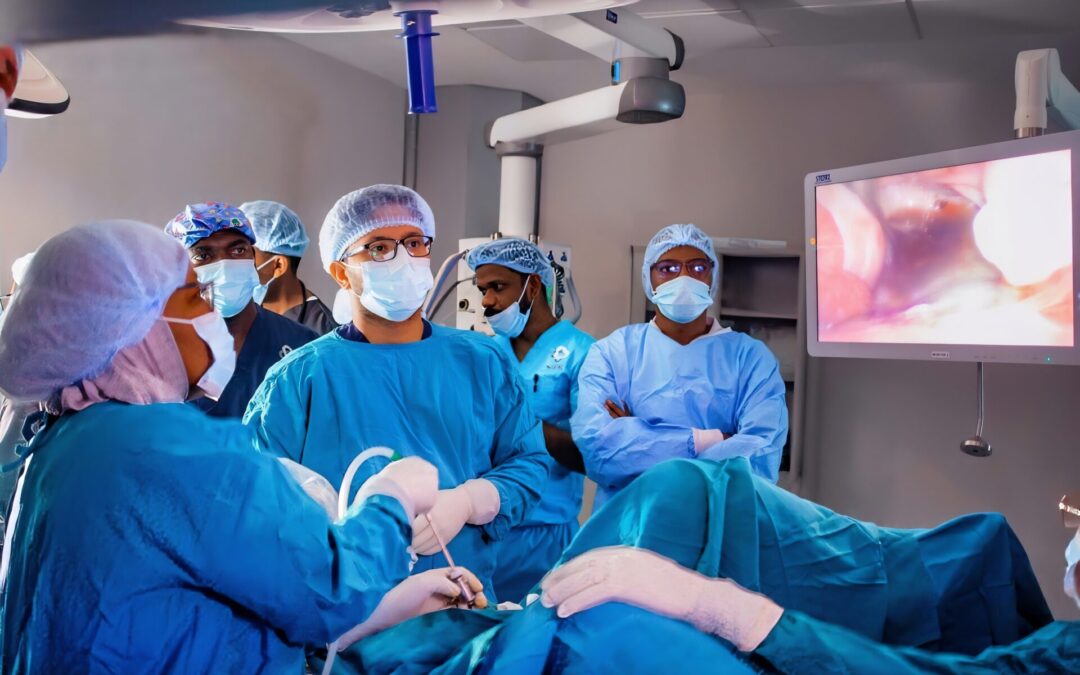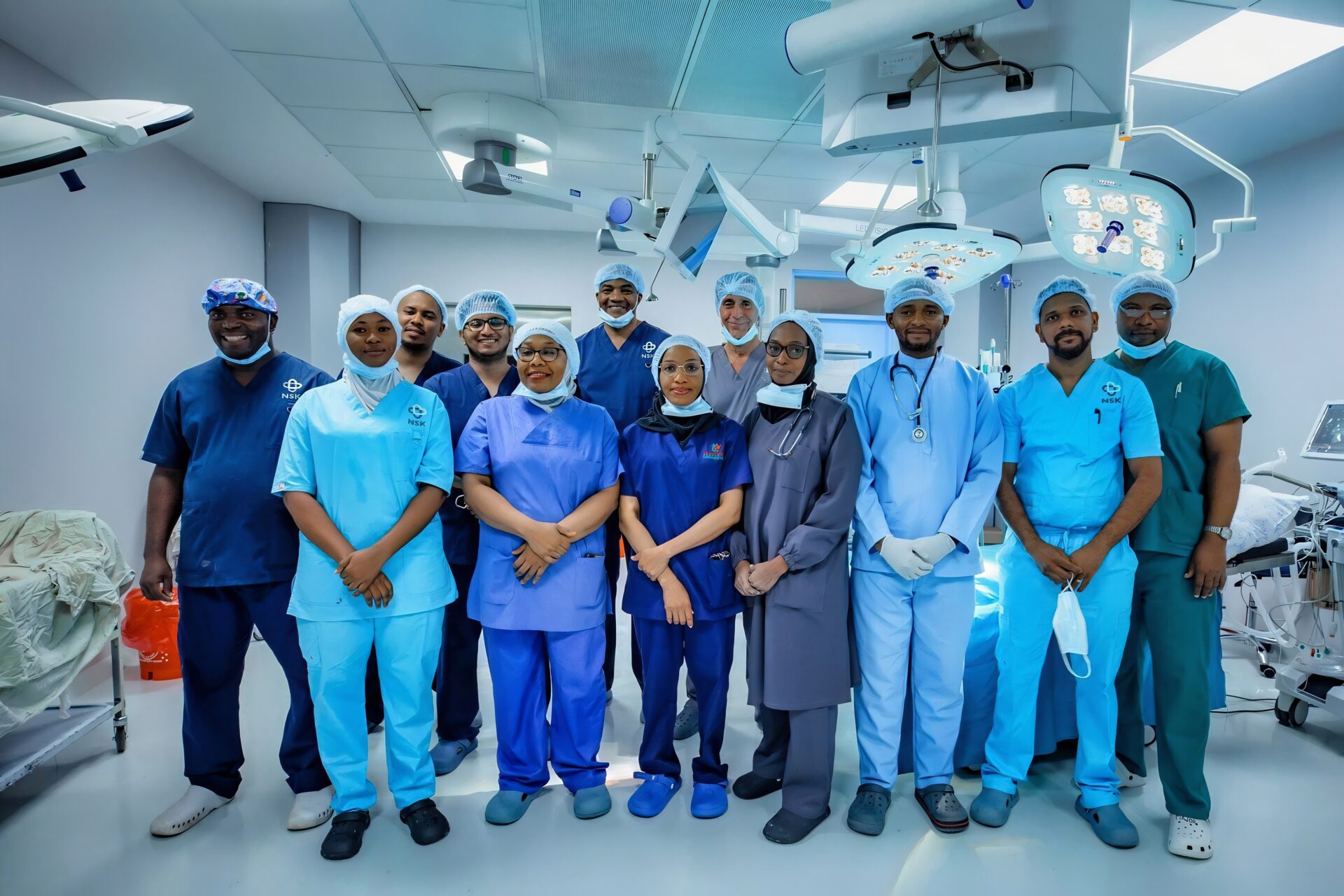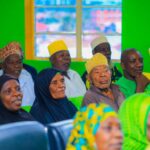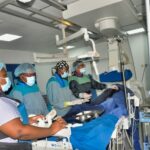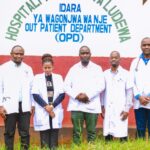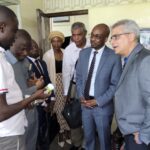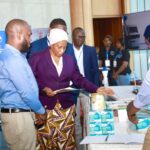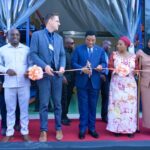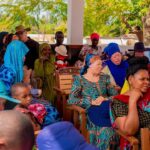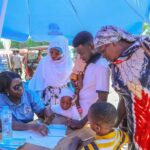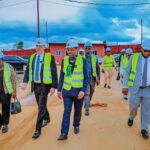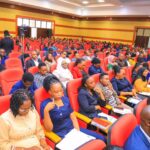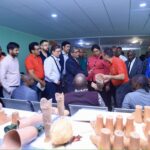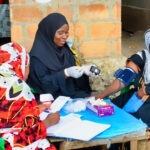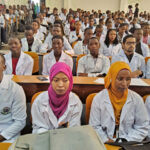A Leap Forward in Healthcare: How Zanzibar Is Transforming Healthcare with Modern Technology and Partnerships
In the heart of the Indian Ocean, Zanzibar is making remarkable strides in modernising its healthcare system through groundbreaking initiatives like the introduction of laparoscopic surgery at Moka Lumumba Referral Hospital. This innovative step underscores the Revolutionary Government of Zanzibar’s commitment to enhancing patient care, reducing recovery times, and achieving universal health coverage for its citizens. By embracing advanced medical technologies and fostering cross-border partnerships—such as with The Same Qualities Foundation—Zanzibar is addressing local healthcare challenges and positioning itself as a model for other low- and middle-income nations. From tackling infrastructure limitations to empowering medical professionals with cutting-edge skills, this transformative journey highlights the power of collaboration, innovation, and resilience in building a healthier, more equitable future for all. Discover how Zanzibar’s bold vision is reshaping healthcare access and inspiring progress across East Africa.
As we delve deeper into this remarkable story, we will explore five key aspects that illuminate the significance of this initiative: the role of modern technology in enhancing patient outcomes, the broader implications for Zanzibar’s healthcare system, the collaborative efforts driving these advancements, potential challenges and counterarguments to consider, and finally, how this leap forward aligns with global health trends. Together, these points paint a compelling picture of what lies ahead for Zanzibari healthcare—and why the world should take notice.
The Power of Laparoscopic Surgery: Transforming Patient Care in Zanzibar
In the lush, sunlit archipelago of Zanzibar, where traditional dhows still glide across the azure waters and the scent of cloves lingers in the air, a quiet but profound transformation is underway. At Moka Lumumba Referral Hospital, laparoscopic surgery—commonly known as “keyhole surgery”—has emerged as a beacon of progress, offering patients access to cutting-edge medical care that was once unimaginable on these islands. This minimally invasive surgical technique represents not just a technological leap but a fundamental shift in how healthcare is delivered, with far-reaching benefits for both individuals and communities.
A New Era of Precision and Efficiency
Laparoscopic surgery operates on a simple yet revolutionary principle: instead of making large incisions typical of traditional open surgeries, surgeons use specialised instruments and a high-definition camera inserted through small keyhole-sized openings. This approach allows them to visualise the internal anatomy on a monitor with remarkable clarity, enabling precise manoeuvres during even the most intricate procedures. For patients at Moka Lumumba Referral Hospital, this translates into tangible advantages that extend beyond the operating theatre.
Shorter hospital stays are one of the most immediate benefits. In Zanzibar, where many families live in remote villages scattered across Unguja and Pemba islands, prolonged hospital admissions can place significant strain on livelihoods. With laparoscopic surgery, patients often recover faster and return home sooner, minimising disruptions to their daily lives. Moreover, the reduced pain and scarring associated with smaller incisions mean less discomfort and quicker resumption of normal activities—a critical consideration in a society where manual labour remains a cornerstone of economic survival.
Post-operative complications, which can be life-threatening in resource-limited settings, are also significantly diminished. Traditional open surgeries carry risks such as infections and prolonged healing periods, particularly challenging in environments where follow-up care may be difficult to access. By contrast, the minimally invasive nature of laparoscopy lowers these risks, ensuring safer outcomes for patients. For a population accustomed to grappling with limited healthcare resources, this advancement is nothing short of transformative.
Bridging Gaps in Healthcare Access
The introduction of laparoscopic surgery at Moka Lumumba Referral Hospital underscores the vital role of technology in addressing longstanding disparities in healthcare access. Zanzibar’s geography, characterised by its idyllic yet dispersed islands, poses unique challenges. Many rural residents must endure arduous journeys—sometimes by boat or rough roads—to reach medical facilities. Even when they arrive, overcrowded hospitals and outdated equipment can further hinder timely treatment.

By adopting laparoscopic techniques, Zanzibar is taking a decisive step toward overcoming these barriers. The efficiency of keyhole surgery means that more patients can be treated within shorter timeframes, alleviating pressure on an already stretched healthcare system. Furthermore, the precision afforded by this method reduces the likelihood of repeat procedures, freeing up valuable resources for other urgent cases. These efficiencies are especially meaningful in a context where every bed, doctor, and piece of equipment counts.
Moreover, this innovation aligns seamlessly with Tanzania’s broader commitment to universal health coverage (UHC). UHC envisions a future where all citizens, regardless of their socio-economic status or location, have equitable access to quality healthcare services. By investing in advanced technologies like laparoscopy, Zanzibar is enhancing its own healthcare infrastructure and contributing to the national vision of leaving no one behind. It sends a powerful message: modern medicine need not remain confined to urban centres or wealthier nations; it can—and should—be made accessible to all.
A Catalyst for Broader Change
Beyond its direct impact on patient care, the adoption of laparoscopic surgery has the potential to catalyse wider changes within Zanzibar’s healthcare ecosystem. For instance, the presence of state-of-the-art equipment encourages local medical professionals to hone their skills and stay abreast of global best practices. Training programmes tailored to laparoscopic techniques will empower surgeons, nurses, and support staff to deliver world-class care right here in Zanzibar, fostering a culture of excellence and continuous improvement.
Additionally, the success of this initiative could inspire confidence among international partners and donors, paving the way for increased collaboration and investment. Already, organisations like The Same Qualities Foundation have demonstrated the power of cross-border cooperation in improving health outcomes. As Zanzibar showcases its ability to effectively integrate advanced technologies, it positions itself as a model for other regions striving to modernise their health systems.
Looking Ahead: A Promise Fulfilled
For the people of Zanzibar, the arrival of laparoscopic surgery at Moka Lumumba Referral Hospital is more than just a technical upgrade—it is a promise fulfilled. It embodies the government’s dedication to harnessing innovation to improve lives, bridging gaps between tradition and modernity, and ensuring that no citizen is left behind in the pursuit of better health.
As the first cohort of patients begins to experience the benefits of this groundbreaking procedure, stories of recovery and renewed hope will undoubtedly ripple through communities, inspiring trust in the evolving healthcare system. And as Zanzibar continues to embrace technological advancements, it reaffirms its place not merely as a tropical paradise but as a forward-thinking hub of progress and resilience.
In this new chapter of Zanzibari healthcare, the power of laparoscopic surgery shines brightly—a testament to what can be achieved when vision meets determination.
Strengthening Zanzibar’s Healthcare Infrastructure: A Foundation for the Future
In the heart of Zanzibar, where the rhythmic call to prayer mingles with the gentle lapping of waves against the shore, lies a vision of progress that transcends the island’s picturesque facade. The introduction of laparoscopic surgery at Moka Lumumba Referral Hospital is not merely the acquisition of a single device; it is a bold statement of intent—a commitment to fortify Zanzibar’s healthcare infrastructure and lay the groundwork for a sustainable, resilient system capable of meeting the needs of its people. This initiative reflects a profound understanding that modern healthcare is not just about treating illness but about creating an ecosystem that empowers communities and fosters long-term well-being.
Addressing Historical Challenges
Historically, Zanzibar’s healthcare system has faced formidable challenges. Underfunded facilities, outdated equipment, and a shortage of trained medical professionals have long hindered efforts to provide equitable access to quality care. For many residents, particularly those in rural areas of Unguja and Pemba, accessing even basic healthcare services has often required navigating significant barriers—whether it be long journeys over unpaved roads or enduring overcrowded clinics with limited resources.
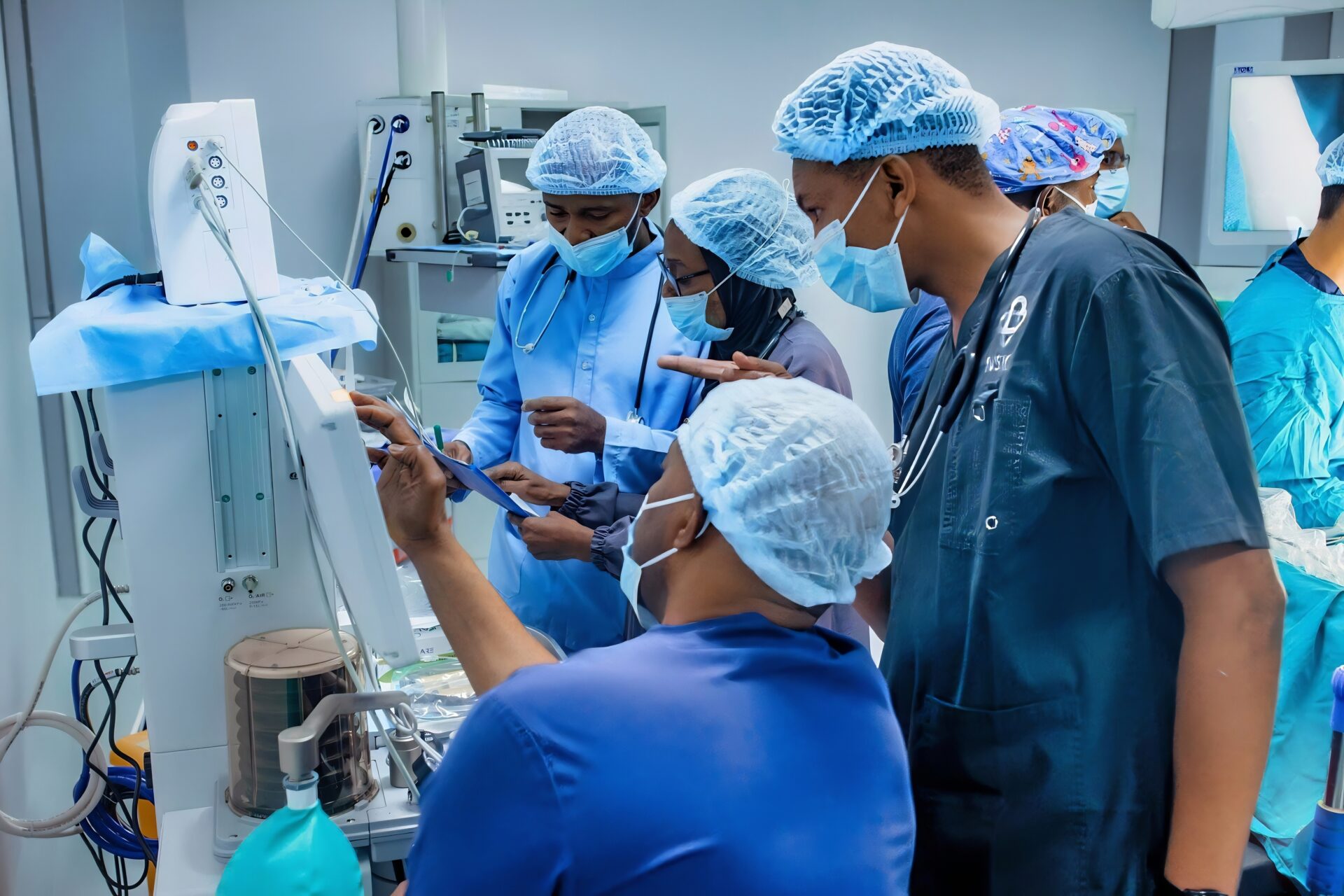
The introduction of laparoscopic surgery represents a pivotal moment in addressing these systemic issues. By investing in advanced medical technology, the Revolutionary Government of Zanzibar is signalling a shift in priorities: public health is no longer a secondary concern but a cornerstone of national development. This investment is not merely about enhancing surgical capabilities—it is about building a healthcare system that can withstand the demands of a growing population while adapting to the evolving landscape of global medicine.
Beyond Equipment: Investing in People and Processes
While the laparoscopic machine itself is undeniably impressive, its true value lies in the ripple effects it generates across the healthcare sector. At its core, this initiative underscores the importance of equipping local medical professionals with the tools they need to excel. By providing hands-on experience with cutting-edge technology, the government is fostering a culture of continuous learning and professional growth.
For doctors and nurses at Moka Lumumba Referral Hospital, the opportunity to train on state-of-the-art equipment means more than just mastering a new technique—it means gaining confidence in their ability to deliver world-class care. This empowerment extends beyond individual practitioners; it permeates the entire healthcare system, raising standards and inspiring innovation. As these skilled professionals pass on their knowledge to colleagues and students, the benefits multiply, creating a virtuous cycle of improvement that strengthens Zanzibar’s healthcare infrastructure from within.
Moreover, the presence of advanced technology like laparoscopic devices serves as a catalyst for broader institutional reforms. Hospitals and clinics are encouraged to adopt streamlined processes, improve maintenance protocols, and implement robust quality assurance measures. These changes ensure that investments in technology translate into tangible improvements in patient outcomes, rather than becoming isolated achievements.
Building Resilience Through Strategic Investment
The decision to invest in laparoscopic surgery also reflects a strategic approach to healthcare planning. In a region prone to economic fluctuations and external shocks, resilience is key. Advanced medical technologies enable hospitals to treat a wider range of conditions efficiently, reducing dependency on referrals to mainland Tanzania or overseas facilities—a costly and logistically complex process for many patients.
Additionally, the integration of laparoscopic surgery positions Zanzibar to better manage public health emergencies. During crises such as pandemics or natural disasters, minimally invasive procedures reduce the burden on hospital resources by shortening recovery times and minimizing post-operative complications. This adaptability ensures that the healthcare system remains functional and responsive, even under duress.
A Vision for Universal Health Coverage
This initiative aligns seamlessly with Zanzibar’s broader goal of achieving universal health coverage (UHC). UHC envisions a future where every citizen, regardless of socio-economic status or geographic location, has access to essential healthcare services without facing financial hardship. By investing in advanced technologies like laparoscopy, the government is taking concrete steps toward making this vision a reality.
For instance, the efficiency gains associated with laparoscopic surgery mean that hospitals can treat more patients within existing resource constraints, effectively expanding service delivery without requiring massive additional expenditure. This scalability is crucial in a context where budgets are tight and demand for healthcare continues to rise. Furthermore, by reducing the need for expensive follow-up treatments and prolonged hospital stays, laparoscopic surgery contributes to cost savings that can be reinvested into other priority areas, such as maternal health or infectious disease prevention.
Inspiring Confidence and Collaboration
The impact of strengthening Zanzibar’s healthcare infrastructure extends beyond clinical outcomes. It inspires confidence—not only among patients but also among international partners and donors who see potential in supporting the island’s journey toward self-sufficiency. Collaborations with organizations like The Same Qualities Foundation highlight the power of partnerships in driving meaningful change. Such initiatives demonstrate that when governments take decisive action, they create fertile ground for collaboration, unlocking additional resources and expertise that further amplify impact.
Looking Ahead: A Legacy of Progress
As Zanzibar embraces this transformative chapter, the message is clear: the islands are not content to remain anchored in the past. By prioritising investments in healthcare infrastructure, the government is laying the foundation for a brighter, healthier future. From training the next generation of medical professionals to ensuring that hospitals are equipped to handle the complexities of modern medicine, every step forward reinforces the idea that healthcare is a shared responsibility—one that requires sustained effort and unwavering commitment.
In the years to come, the legacy of initiatives like the introduction of laparoscopic surgery will be measured not just in lives saved but in lives transformed. For the people of Zanzibar, this is more than a technological upgrade—it is a promise kept, a testament to what can be achieved when vision meets determination, and a beacon of hope for generations yet to come.
Collaboration Across Borders: The Role of Partnerships in Zanzibar’s Healthcare Renaissance
In the sun-drenched archipelago of Zanzibar, where ancient traditions blend seamlessly with modern aspirations, a spirit of collaboration is quietly transforming the healthcare landscape. No great achievement occurs in isolation, and Zanzibar’s recent strides in medical innovation are a testament to the power of partnerships that transcend borders. From life-changing cleft lip surgeries to the introduction of laparoscopic technology, these advancements have been made possible through the tireless efforts of local stakeholders and international allies working hand in hand. In an era defined by interconnectedness, Zanzibar’s journey underscores the critical role of cross-border cooperation in addressing shared health challenges across East Africa.
A Tapestry of Shared Expertise
Health Minister Nassor Ahmed Mazrui recently praised organisations like The Same Qualities Foundation, based in Arusha, for their invaluable contributions to improving healthcare outcomes in Zanzibar. This foundation, among others, has played a pivotal role in bringing specialised medical expertise to underserved communities. For instance, cleft lip surgeries—once out of reach for many families due to financial or logistical barriers—are now being performed regularly, thanks to the generosity and dedication of such partners. These procedures restore physical function and transform lives by alleviating social stigma and enabling children to lead fuller, more confident lives.

The impact of these collaborations extends far beyond individual cases. By pooling resources and knowledge, local and international actors create synergies that amplify their collective impact. For Zanzibar, this means access to cutting-edge techniques, state-of-the-art equipment, and insights from global best practices—all without reinventing the wheel. It is a model of efficiency and solidarity that reflects the very essence of what it means to work together toward a common goal.
Bridging Gaps Through Training and Mentorship
One of the most enduring legacies of these partnerships lies in the realm of education and capacity building. International specialists who visit Zanzibar often conduct training workshops, mentorship programmes, and hands-on demonstrations designed to empower local healthcare workers. For example, surgeons at Moka Lumumba Referral Hospital are now gaining firsthand experience with advanced procedures under the guidance of visiting experts. This transfer of skills ensures that the benefits of collaboration are sustainable, as local professionals become equipped to deliver high-quality care independently.
Such exchanges foster mutual growth, creating a two-way flow of knowledge and expertise. While Zanzibari practitioners learn from their international counterparts, visiting specialists gain valuable insights into the unique challenges faced by island communities. This reciprocal relationship strengthens individual capabilities and reinforces the broader healthcare ecosystem, ensuring that both parties emerge stronger and better prepared to tackle future challenges.
Strengthening Regional Resilience
The collaboration between Zanzibar and its international partners is emblematic of a larger trend sweeping across East Africa: the recognition that no nation can address complex health issues alone. Diseases do not respect borders, whether they be malaria outbreaks, non-communicable diseases, or pandemics like COVID-19. By fostering regional cooperation, countries in East Africa are building resilience against shared threats while promoting equitable access to healthcare services.
Zanzibar’s engagement with organisations like The Same Qualities Foundation exemplifies how small, yet strategic investments can yield outsized returns. When a child receives corrective surgery for a congenital condition or when a surgeon masters a new technique that saves countless lives, the effects ripple outward, enhancing the overall well-being of entire communities. Moreover, these successes serve as a blueprint for other regions grappling with similar challenges, demonstrating that even modest initiatives can spark profound change when executed with vision and determination.
A Reflection of Global Interconnectedness
At its core, Zanzibar’s embrace of international partnerships is a reminder of our shared humanity. Health knows no boundaries; progress in one corner of the world invariably benefits others. Whether it is a Tanzanian surgeon learning laparoscopic techniques from a European specialist or an American NGO funding cleft lip surgeries in Pemba, every act of cooperation reaffirms the interconnected nature of global health systems.
This interconnectedness also highlights the importance of equity in healthcare. By prioritising underserved populations and leveraging external support to bridge gaps, Zanzibar is contributing to a global movement aimed at leaving no one behind. Such efforts align with international frameworks like the United Nations Sustainable Development Goals (SDGs), which call for universal health coverage and reduced inequalities worldwide. Zanzibar’s story serves as living proof that even resource-constrained settings can achieve remarkable results when supported by a network of committed allies.
Looking Ahead: A Model for Sustainable Progress
As Zanzibar continues to forge partnerships with entities near and far, it sets a powerful example for other nations striving to improve their healthcare systems. The key lies in striking a balance between self-reliance and collaboration—investing in local talent and infrastructure while remaining open to external assistance. This dual approach ensures that advancements are not fleeting but enduring, rooted in a foundation of shared values and mutual respect.
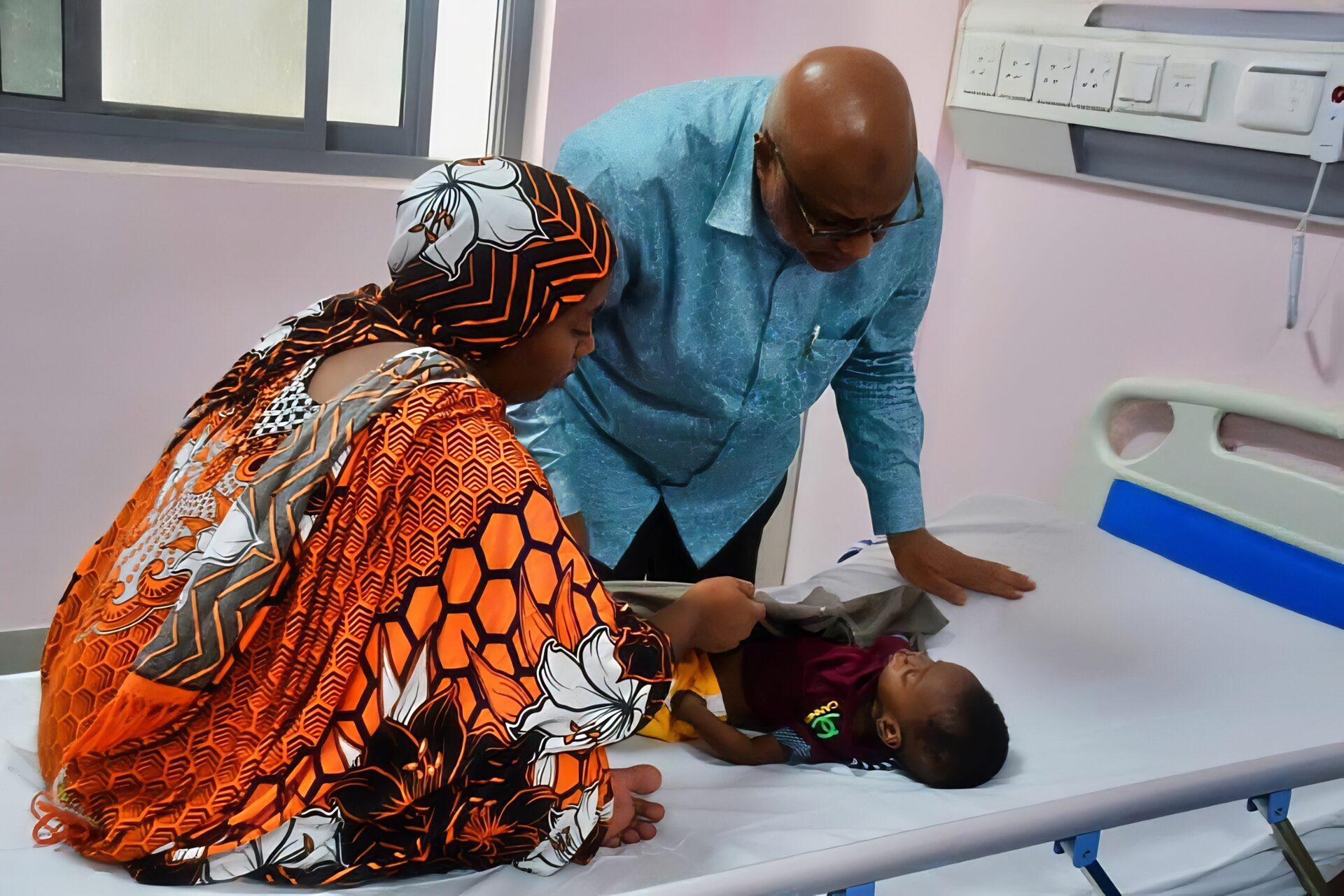
For the people of Zanzibar, these partnerships represent more than just access to better healthcare—they symbolise hope, opportunity, and the belief that a brighter future is within reach. Each successful surgery, each trained professional, and each strengthened facility is a step toward realising the dream of universal health coverage. And as stories of recovery and transformation spread across the islands, they inspire confidence in the notion that together, we can overcome even the most daunting challenges.
In the end, Zanzibar’s healthcare renaissance is not just about curing ailments or acquiring new technologies—it is about weaving a tapestry of collaboration that transcends borders, unites hearts, and uplifts communities. It is a reminder that when we stand shoulder to shoulder, there is no limit to what we can achieve.
Addressing Challenges: Potential Roadblocks Ahead in Zanzibar’s Laparoscopic Surgery Initiative
While the introduction of laparoscopic surgery at Moka Lumumba Referral Hospital is a monumental leap forward, it is not without its challenges. As with any transformative initiative, particularly in resource-constrained settings like Zanzibar, there are hurdles that must be navigated to ensure the sustainability and success of this groundbreaking effort. Recognising these potential roadblocks—and proactively addressing them—is essential to safeguarding the long-term impact of this innovation on Zanzibar’s healthcare system.
The Cost Factor: A Double-Edged Sword
One of the most pressing concerns surrounding the adoption of laparoscopic surgery is the cost associated with maintaining high-tech equipment and securing a steady supply of consumables. Unlike traditional open surgeries, which rely primarily on basic surgical tools, laparoscopic procedures require specialised instruments such as cameras, trocars, and disposable items like sutures and sealing devices. These materials, while indispensable, can be expensive to procure and replace regularly.
For an island nation like Zanzibar, where financial resources are often stretched thin, ensuring the affordability of these consumables presents a significant challenge. Even the maintenance of the laparoscopic machine itself—calibrating sensitive equipment, troubleshooting technical difficulties, and replacing parts—requires ongoing investment. Without careful planning, these costs could place undue strain on the national healthcare budget, potentially jeopardising the longevity of the initiative.
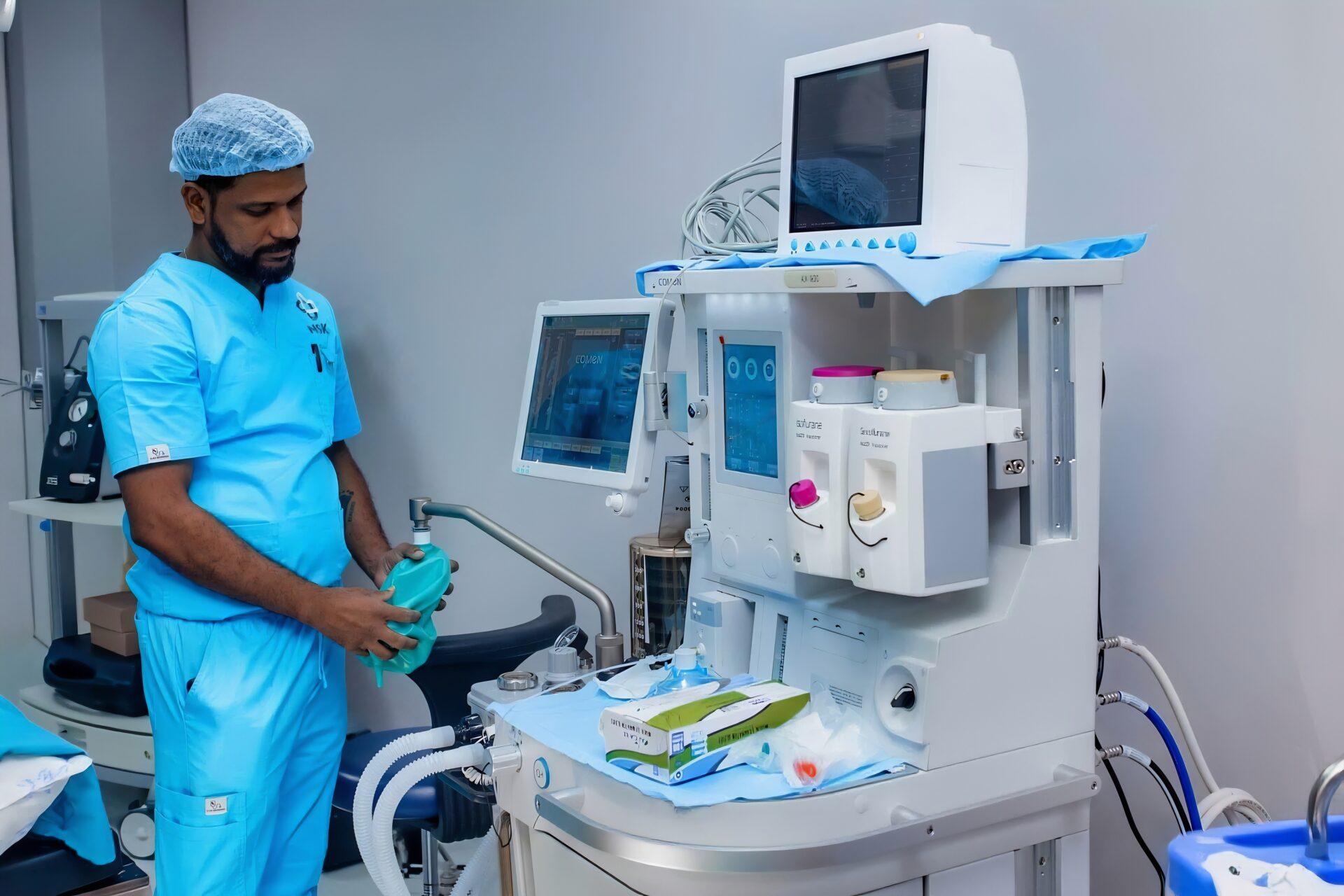
To address this, exploring sustainable funding models will be crucial. Public-private partnerships (PPPs), for instance, offer a viable solution by leveraging private sector expertise and resources to complement government efforts. By collaborating with international organisations, philanthropic foundations, or even local businesses, Zanzibar can create a diversified funding base that reduces reliance on public coffers alone. Additionally, bulk purchasing agreements or regional procurement consortia could help lower the cost of consumables, making the programme more financially viable in the long run.
Resistance to Change: Bridging the Gap Between Tradition and Innovation
Another potential roadblock lies in the human element: resistance to change. In any professional field, introducing new technologies can evoke scepticism or apprehension, and medicine is no exception. Some practitioners may view traditional open surgeries as sufficient, questioning whether the benefits of laparoscopy justify the additional training and investment required. Others may fear the steep learning curve associated with mastering a new technique, particularly if they have spent years honing their skills in conventional methods.
Similarly, patients accustomed to familiar procedures might express hesitation about embracing something unfamiliar. Misconceptions about laparoscopic surgery—such as concerns over its safety or effectiveness—could deter individuals from seeking treatment, undermining the initiative’s impact.
To mitigate these risks, transparent communication will be vital. Educational campaigns targeting both medical professionals and the general public can play a pivotal role in dispelling myths and fostering trust. For instance, hosting seminars, distributing informational brochures, or sharing patient testimonials through local media channels can highlight the tangible benefits of laparoscopic surgery, such as reduced recovery times and fewer complications. Demonstrating real-world success stories from early adopters within Zanzibar can also serve as powerful evidence of the procedure’s efficacy, encouraging wider acceptance.
Building Confidence Through Training and Mentorship
Addressing resistance among healthcare workers requires more than just persuasion—it demands action. Robust training programmes tailored to the needs of Zanzibari practitioners are essential to equip them with the skills and confidence needed to embrace laparoscopic techniques. Hands-on workshops led by experienced surgeons, either locally or through visiting specialists, can provide invaluable opportunities for learning and practice.
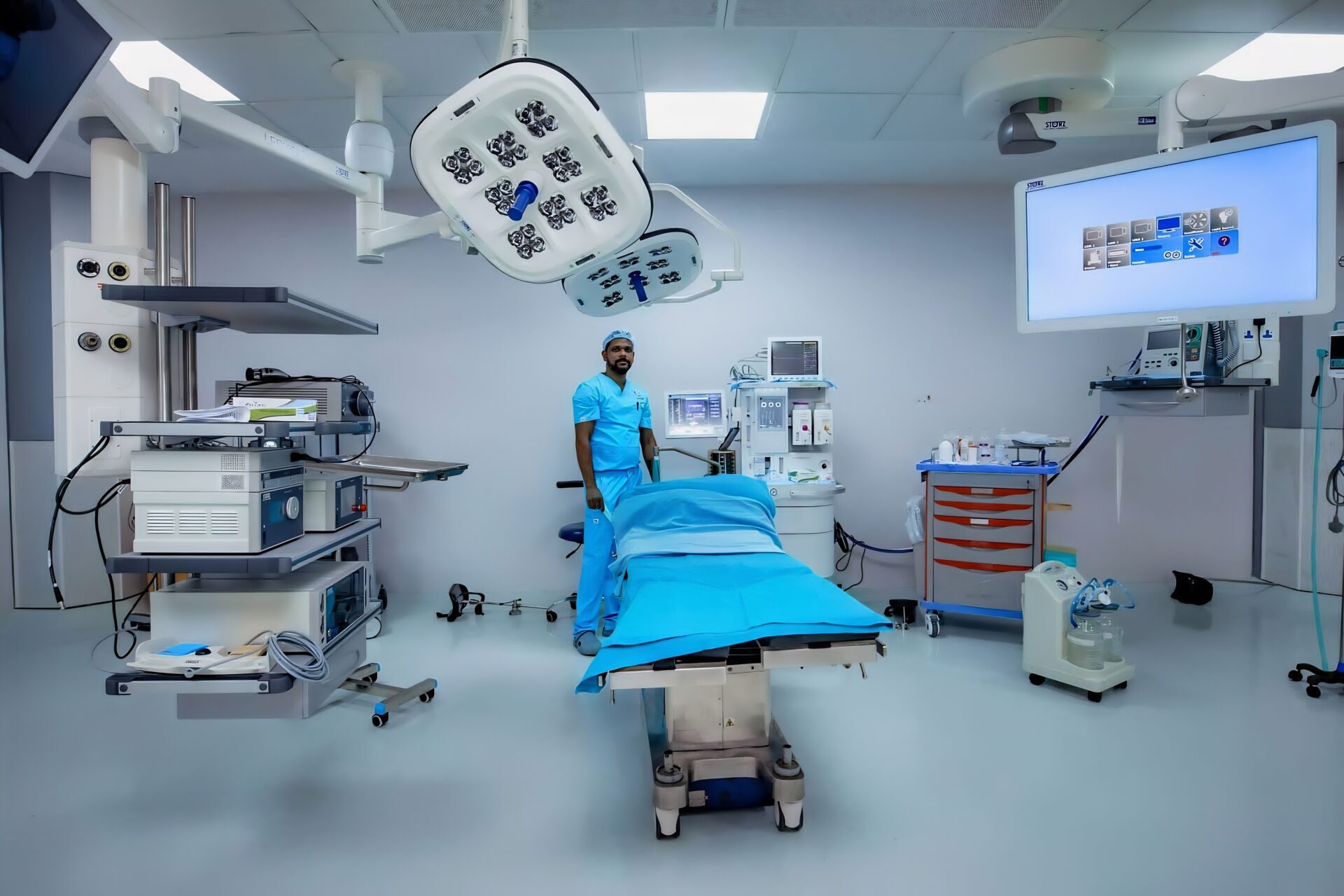
Mentorship programmes, where seasoned laparoscopic surgeons guide their Zanzibari counterparts during initial procedures, can further ease the transition. This “learning by doing” approach not only accelerates skill acquisition but also fosters camaraderie and mutual respect between trainers and trainees. Over time, as local practitioners grow more proficient, they will become ambassadors for the technology, inspiring colleagues and reassuring patients alike.
Infrastructure Limitations: Ensuring Readiness Beyond Equipment
Beyond the equipment itself, the successful implementation of laparoscopic surgery hinges on broader infrastructure readiness. Reliable electricity supply, for example, is critical to operating high-tech machinery—a challenge in some parts of Zanzibar where power outages remain common. Similarly, adequate sterilisation facilities and post-operative care units are necessary to support safe and effective procedures.
To overcome these limitations, targeted investments in hospital infrastructure will be essential. Installing backup generators, upgrading sterilisation equipment, and expanding recovery wards can enhance the overall capacity of Moka Lumumba Referral Hospital to deliver consistent, high-quality care. These improvements benefit laparoscopic surgery and strengthen the hospital’s ability to handle other medical services, creating a multiplier effect that enhances the entire healthcare ecosystem.
A Collaborative Approach to Long-Term Success
Ultimately, overcoming these challenges will require a collaborative effort involving multiple stakeholders. Government leadership must remain steadfast in its commitment to prioritising healthcare, while non-governmental organisations and international partners can provide supplementary funding, expertise, and advocacy. Local communities, too, have a role to play—by voicing their needs and holding leaders accountable, they can ensure that initiatives like laparoscopic surgery remain aligned with the realities on the ground.
By addressing these potential roadblocks head-on, Zanzibar can pave the way for a future where advanced medical technologies are not just introduced but sustained. The journey ahead may be complex, but with determination, ingenuity, and collaboration, the islands can continue to defy expectations and set a shining example for others to follow.
Reflections on Resilience and Vision
The challenges facing Zanzibar’s laparoscopic surgery initiative are neither insurmountable nor unique—they mirror the obstacles encountered by countless nations striving to modernise their healthcare systems. What sets Zanzibar apart is its unwavering vision and willingness to innovate despite constraints. By acknowledging these roadblocks and taking proactive steps to address them, the archipelago reaffirms its commitment to building a healthier, more equitable society for all its citizens.
In the end, the true measure of success will not be defined solely by the number of surgeries performed or machines installed—but by the lives transformed and the legacy of resilience left behind. For Zanzibar, this is more than a technological upgrade; it is a testament to the enduring spirit of progress and the boundless possibilities that arise when communities come together to overcome adversity.
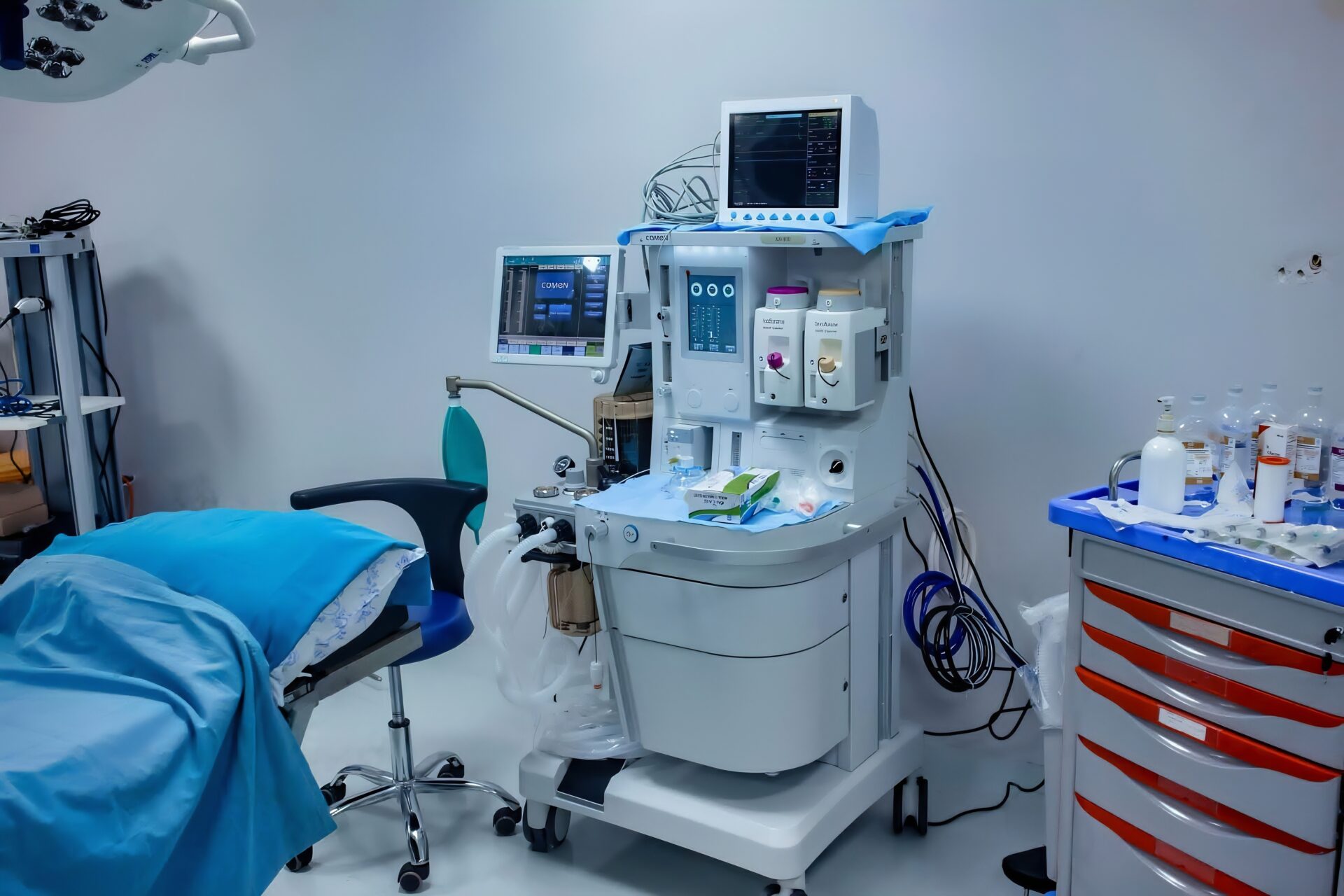
Aligning with Global Trends: A Step Toward Universal Health Coverage in Zanzibar
In the vibrant tapestry of global health, Zanzibar’s embrace of laparoscopic surgery is more than a local milestone—it is a bold stride toward universal health coverage (UHC), a vision championed by the World Health Organization (WHO) and embraced by nations worldwide. UHC represents the aspiration that all individuals, regardless of their socio-economic status or geographic location, should have access to quality healthcare services without facing financial hardship. For Zanzibar, this initiative at Moka Lumumba Referral Hospital exemplifies how innovation, tailored to local needs, can play a pivotal role in advancing this noble goal. By aligning itself with global trends, Zanzibar is transforming its own healthcare system and positioning itself as a beacon of inspiration for other low- and middle-income countries striving to modernise and democratise healthcare.
Bridging the Gap Between Aspiration and Reality
Universal health coverage is not merely an abstract concept; it is a tangible framework designed to address systemic inequities in healthcare access. In Zanzibar, where many residents face barriers such as long travel distances, limited facilities, and financial constraints, achieving UHC requires innovative solutions that maximise efficiency and equity. The introduction of laparoscopic surgery encapsulates perfectly this approach. By reducing recovery times, minimising complications, and enabling faster returns to daily life, laparoscopy directly addresses some of the most pressing challenges faced by underserved communities.
For instance, patients from remote areas of Pemba or rural Unguja no longer need to endure prolonged hospital stays or repeated visits for follow-up care—a significant advantage in a setting where accessing healthcare often involves considerable time and expense. Moreover, the cost-effectiveness of laparoscopic procedures—due to shorter hospitalisations and reduced post-operative care—ensures that resources are used judiciously, allowing more patients to benefit within existing budgets. This alignment with UHC principles underscores Zanzibar’s commitment to making healthcare not only accessible but also sustainable and affordable.
A Model for Sub-Saharan Africa
Zanzibar’s efforts to integrate advanced medical technologies into its healthcare system hold profound implications beyond its shores. Success stories emerging from Moka Lumumba Referral Hospital serve as powerful examples for neighbouring regions grappling with similar challenges. In sub-Saharan Africa, where healthcare systems often struggle with underfunding, outdated equipment, and shortages of trained personnel, Zanzibar’s experience demonstrates that progress is possible even in resource-constrained environments.
By showcasing how targeted investments in technology, coupled with robust training programmes and strategic partnerships, can yield transformative results, Zanzibar inspires others to follow suit. For example, countries like Kenya, DR Congo, and Burundi—each striving to strengthen their own healthcare infrastructure—could draw valuable lessons from Zanzibar’s journey. The ripple effect of such cross-border inspiration has the potential to catalyse a wave of positive change across the region, fostering greater collaboration and shared learning among nations.
Empowering Communities Through Healthcare
At its core, universal health coverage is about more than treating illnesses—it is about empowering individuals and communities to lead healthier, more productive lives. Laparoscopic surgery embodies this ethos by addressing both immediate medical needs and broader societal impacts. When patients recover faster and experience fewer complications, they are able to return to work, care for their families, and contribute to their communities sooner. This holistic benefit resonates deeply in Zanzibar, where livelihoods are often closely tied to physical well-being.
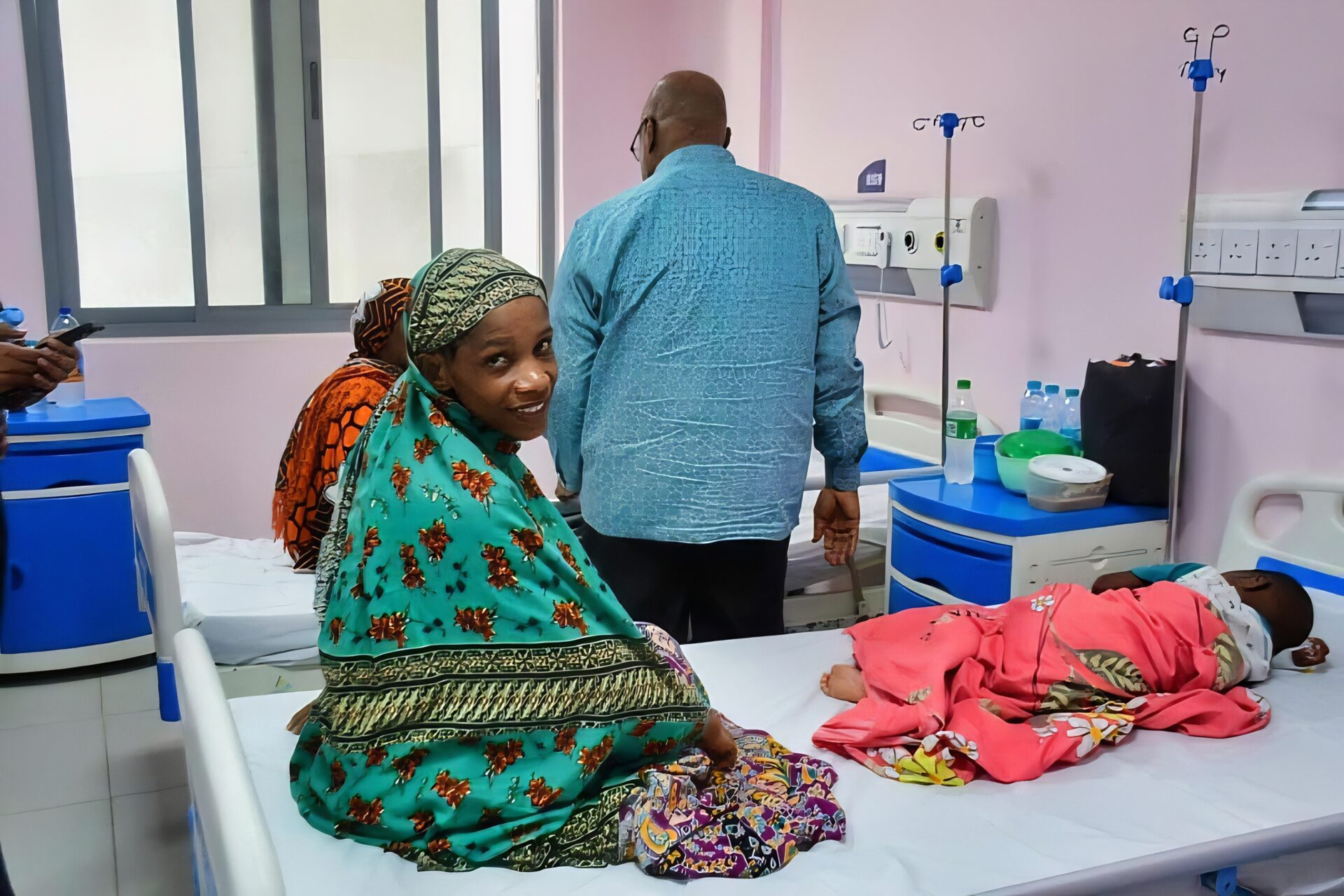
Furthermore, the psychological impact of receiving high-quality care cannot be overstated. For many residents, particularly those in underserved areas, the availability of advanced treatments like laparoscopy fosters a sense of dignity and inclusion. It sends a clear message: every individual matters, and no one should be left behind in the pursuit of better health. This empowerment extends beyond patients to healthcare workers themselves, who gain confidence and pride in delivering cutting-edge care that rivals international standards.
Leveraging Technology for Equitable Access
The adoption of laparoscopic surgery highlights another critical aspect of UHC: leveraging technology to bridge gaps in healthcare delivery. In Zanzibar, where geography poses unique challenges, technological advancements offer practical solutions. For example, minimally invasive procedures reduce the burden on overcrowded hospitals by shortening patient stays and freeing up beds for other cases. Similarly, the precision of laparoscopy minimises the risk of repeat surgeries, ensuring that limited resources are allocated efficiently.
Moreover, the integration of advanced technologies positions Zanzibar to better manage public health emergencies. During crises such as pandemics or natural disasters, when healthcare systems are stretched to their limits, efficient surgical techniques become even more critical. By investing in innovations like laparoscopy, Zanzibar strengthens its capacity to respond effectively to unforeseen challenges while maintaining routine care—a cornerstone of resilient health systems.
A Catalyst for Broader Systemic Reforms
Zanzibar’s alignment with global trends toward UHC also serves as a catalyst for broader systemic reforms within its healthcare sector. The success of initiatives like laparoscopic surgery underscores the importance of adopting a comprehensive approach to healthcare improvement. This includes strengthening supply chains to ensure steady access to consumables, upgrading hospital infrastructure to support advanced technologies, and fostering a culture of continuous learning among medical professionals.
By addressing these interconnected elements, Zanzibar lays the groundwork for a healthcare system that is not only capable of meeting current demands but also adaptable to future needs. Such reforms resonate with global calls for integrated, people-centred healthcare systems that prioritise prevention, treatment, and rehabilitation equally.
A Legacy of Progress and Possibility
Ultimately, Zanzibar’s embrace of laparoscopic surgery is a testament to what can be achieved when vision meets action. By aligning itself with global movements toward universal health coverage, the archipelago reaffirms its place as a forward-thinking leader in healthcare innovation. Its journey serves as a reminder that achieving UHC is not an insurmountable task—it is a series of deliberate, thoughtful steps taken in pursuit of a brighter, healthier future.
As Zanzibar continues to champion this cause, it leaves an indelible mark on the global stage. Its story is one of resilience, ingenuity, and hope—a story that reminds us all of the boundless possibilities that arise when we commit to building a world where everyone, everywhere, has access to the care they deserve. In doing so, Zanzibar does not just treat illnesses—it empowers communities to thrive, proving that the path to universal health coverage begins with a single step, taken together.
Conclusion: A Brighter Future Beckons
The advent of laparoscopic surgery at Moka Lumumba Referral Hospital is far more than a technological milestone—it is a testament to Zanzibar’s unwavering commitment to transforming its healthcare landscape into one that prioritises accessibility, equity, and innovation. This bold step reflects not just the acquisition of advanced equipment but the embodiment of hope, resilience, and collective determination. For patients who once faced daunting journeys to seek treatment or endured prolonged recoveries, this initiative brings tangible benefits: shorter hospital stays, reduced pain, and faster returns to their daily lives. Yet, beyond these measurable outcomes lies something equally profound—a renewed sense of optimism among the people of Zanzibar. It is a reminder that even in the face of adversity, progress is possible when communities come together with vision and purpose.
Lessons from Zanzibar for a Global Audience
As Zanzibar charts this transformative course, it invites us to reflect on broader implications that resonate far beyond its shores. How might other nations learn from its example? The archipelago’s journey underscores the importance of tailoring global health trends to local contexts. While universal health coverage (UHC) remains an aspirational goal for many countries, Zanzibar demonstrates that achieving it requires more than grand declarations—it demands practical, incremental steps rooted in collaboration, innovation, and sustained investment.
For instance, the integration of laparoscopic surgery exemplifies how targeted investments in technology can yield outsized returns, particularly in resource-constrained settings. By prioritising efficiency and patient-centred care, Zanzibar has shown that cutting-edge solutions need not be reserved for wealthier nations; they can—and should—be adapted to meet the unique needs of underserved populations. Moreover, the role of partnerships cannot be overstated. Whether through international organisations like The Same Qualities Foundation or regional collaborations, Zanzibar highlights the power of shared expertise and resources in overcoming systemic challenges. These lessons offer valuable insights for other low- and middle-income countries striving to modernise their healthcare systems while staying true to their cultural and economic realities.
The Role of Technology and Partnership in Shaping Healthcare’s Future
At the heart of Zanzibar’s success lies a dual emphasis on technology and partnership. Advanced tools like laparoscopic devices have revolutionised surgical care, offering precision and efficiency that traditional methods simply cannot match. However, technology alone is insufficient without the human element—the skilled hands of surgeons, the dedication of nurses, and the trust of patients. Herein lies the critical role of partnerships, which bridge gaps in knowledge, funding, and infrastructure. By fostering relationships with external allies while nurturing local talent, Zanzibar has created a model that balances self-reliance with collaboration, ensuring that advancements are sustainable and impactful.
This approach serves as a microcosm of what is possible on a global scale. As the world grapples with persistent health disparities, Zanzibar’s experience reminds us that no single entity can solve these challenges alone. Governments, non-governmental organisations, private sector actors, and communities must work in concert, pooling their strengths to build resilient health systems capable of serving all individuals equitably.
Toward a World Where Healthcare Is a Right, Not a Privilege
Perhaps the most poignant question raised by Zanzibar’s journey is this: How can we collectively work toward a world where every individual, regardless of geography or circumstance, has access to the care they deserve? The answer begins with a shared commitment to universal health coverage—a vision that transcends borders and unites humanity in the pursuit of better health for all. Zanzibar’s efforts align seamlessly with this global movement, proving that even small islands can make monumental contributions to the greater good.
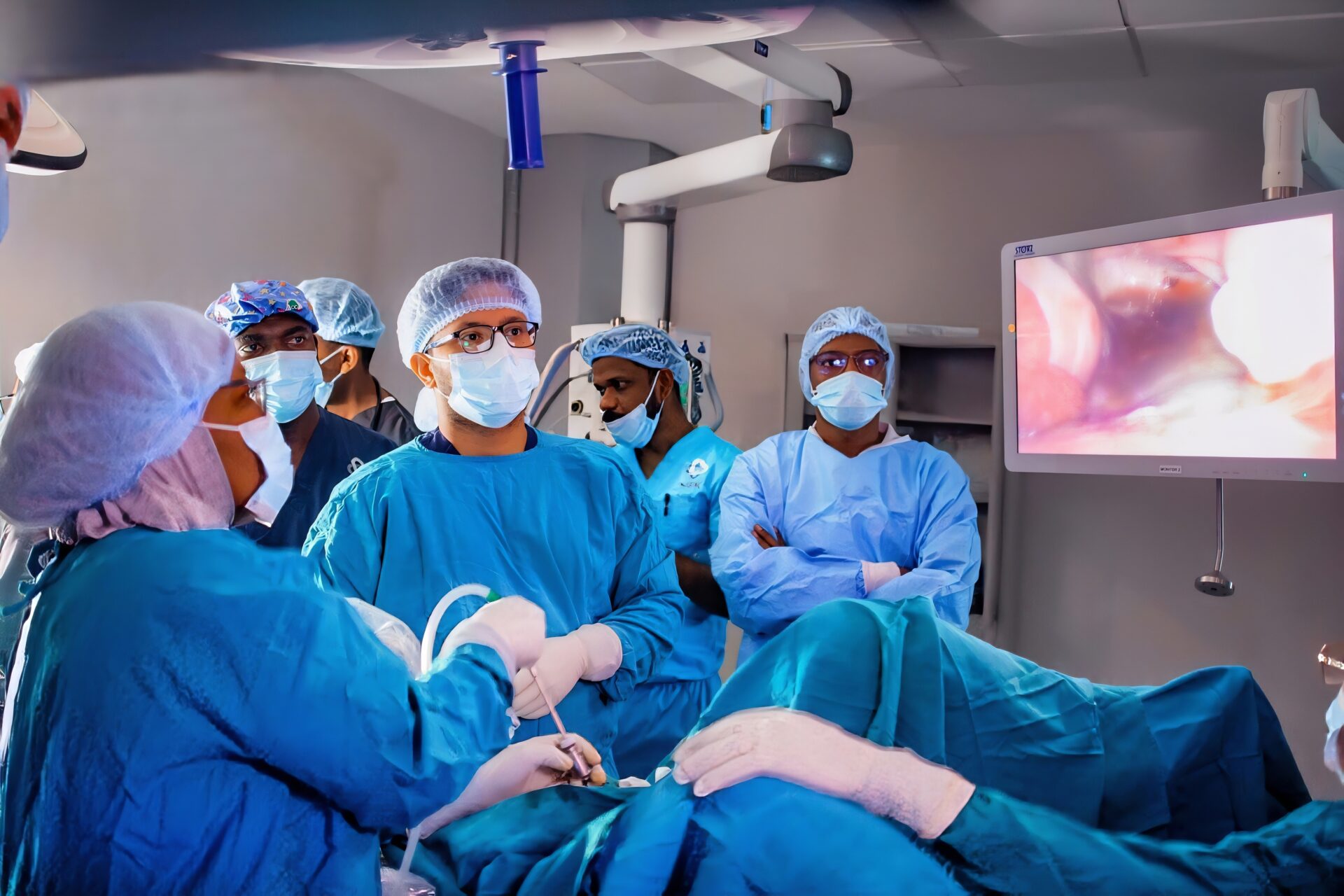
By investing in innovations like laparoscopic surgery, Zanzibar is not merely treating illnesses; it is laying the foundation for healthier, more prosperous communities. When patients recover faster and return to their livelihoods, entire families benefit. When medical professionals gain new skills and confidence, the ripple effects extend across generations. And when healthcare becomes accessible to all, societies flourish.
A Promise of Healing and Hope
For now, the people of Zanzibar can look forward to brighter days ahead—days filled with healing, opportunity, and the promise of a healthier tomorrow. From the bustling streets of Stone Town to the quiet villages of Pemba, stories of recovery and renewal will undoubtedly inspire confidence in the evolving healthcare system. Each successful surgery performed at Moka Lumumba Referral Hospital is a testament to what can be achieved when determination meets innovation, leaving an indelible mark on the lives of countless individuals.
Yet, this is not the end of the journey—it is only the beginning. As Zanzibar continues to embrace technological advancements, foster partnerships, and address systemic challenges, it reaffirms its place as a beacon of progress in East Africa. Its story serves as a powerful reminder that healthcare is not just about curing ailments; it is about empowering communities to thrive, dream, and aspire to a better future.
In the end, Zanzibar’s embrace of laparoscopic surgery is more than a leap forward in medical care—it is a celebration of human potential. It is a declaration that no challenge is insurmountable, no dream too ambitious, and no life undeserving of dignity and care. For the people of Zanzibar, the horizon glimmers with promise, heralding a new era of hope, healing, and boundless possibility.
Tanzania Media
- Kanyala Ferry Launch: TEMESA’s New Service for 15,000 Sengerema Residents (Mwanza) - 18 August 2025
- Russia-Tanzania Naval Cooperation: How the Smolny Training Ship Boosts Dar es Salaam’s Maritime Security - 18 August 2025
- Tanzania’s ICGLR Commitment: Stabilising the DRC & Great Lakes Region - 18 August 2025

